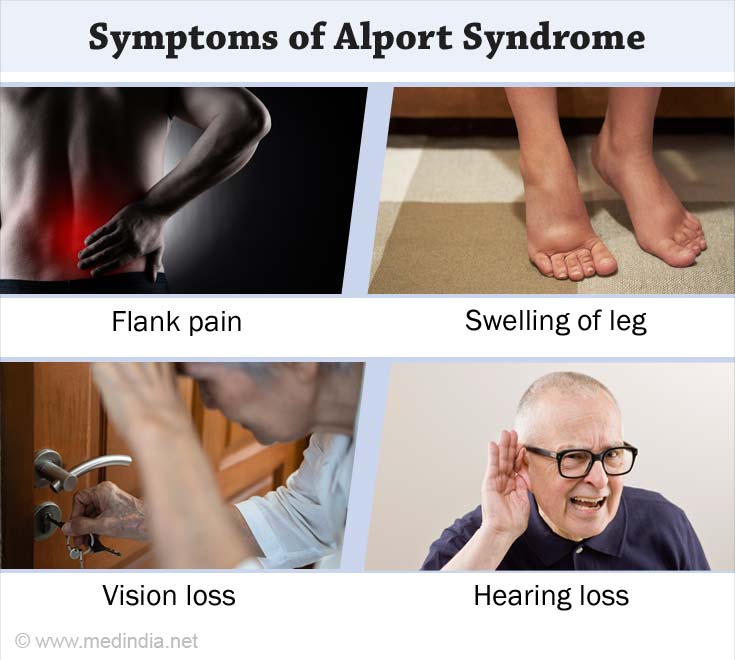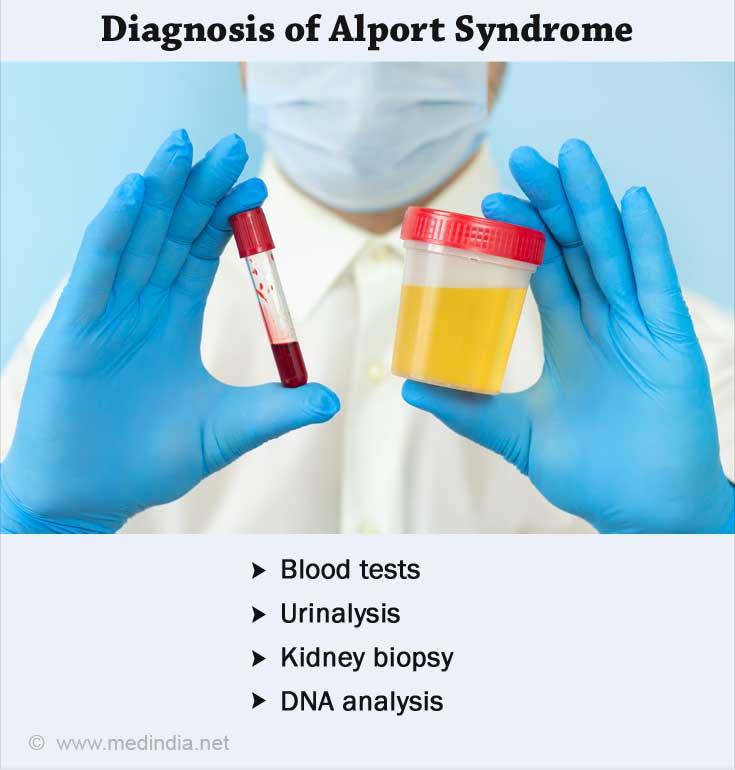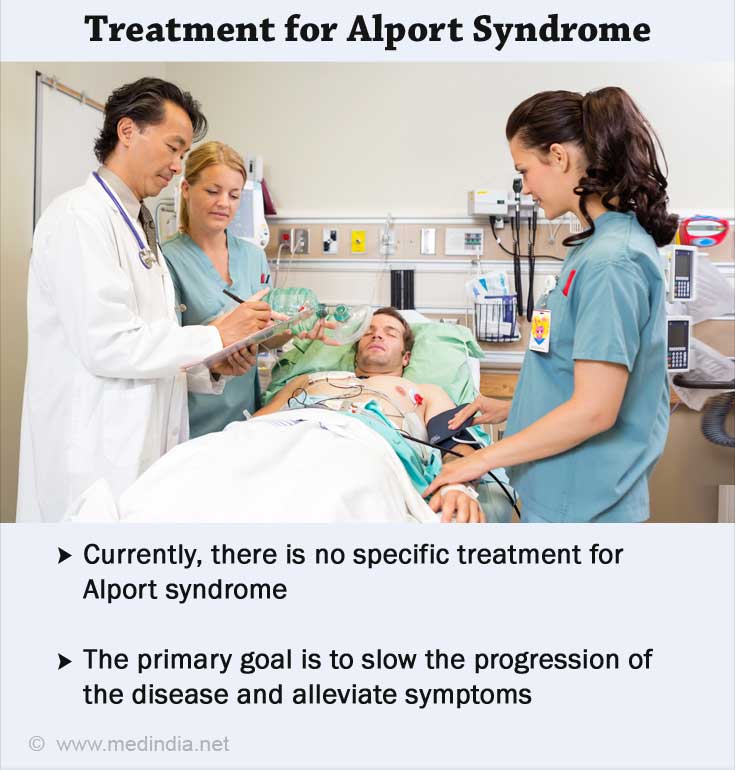What is Alport Syndrome?
Alport syndrome is a rare inherited genetic condition that is characterized by progressive kidney disease, eye abnormalities and hearing loss.
Dr. Cecil A. Alport first identified this disorder in the year 1927 in a British family.
Alport syndrome occurs in 1 out of 50,000 newborns and affects males more than females.
Alport syndrome is a primary basement membrane disorder arising from mutations in the genes coding for alpha-3, alpha-4 and alpha-5 chains of the type IV collagen protein family. These alpha chains are normally located in various basement membranes of the kidney, inner ears and eyes. Genetic abnormalities characteristic of this disease lead to defects in the basement membranes at these sites resulting in the clinical features of the disease.
The disease can be transmitted in heterogeneous patterns depending on the gene involved. The most common one is an X chromosome-linked pattern where the disease is passed from unaffected females (carriers) to their male children and usually involves the COL4A5 gene. Females who have an X-chromosome with the affected gene may show some symptoms but only a few develop the full-blown disease. The syndrome is caused by mutations in the genes COL4A3 and COL4A4, which are usually inherited in either an autosomal dominant or autosomal recessive pattern.
Mutations in the aforementioned genes cause abnormalities in the glomeruli, which are very small blood vessels in the kidneys that are capable of filtering waste from the blood and producing urine. As a consequence, blood and proteins are excreted in the urine. Scarring and renal failure eventually develop in these individuals.
Type IV collagen is also an important component of the inner ear, particularly the organ of Corti. This little organ is responsible for converting sound waves into nerve impulses that the brain can understand. Those with Alport syndrome experience sensorineural hearing loss, which manifests during late childhood or early adolescence.
The same collagen is required to maintain the shape of the lens in the eye as well as the colour of the retina. Anomaly in this collagen causes out-of-shape lenses (anterior lenticonus) as well as aberrant colouring of some light-sensitive tissue in the retina, resulting in impaired vision.
Smooth muscle overgrowths known as 'leiomyomata' can occur in a tiny proportion of individuals.
The classical presentation of the disease is most often seen in X-linked disease. Patients with autosomal recessive pattern of inheritance have a similar presentation. Those with autosomal dominant disease exhibit a more gradual loss of renal function.
What are the Symptoms of Alport Syndrome?
Patients with Alport syndrome present with the following symptoms:
- Swelling in the ankle, feet, leg, eyes
- Blood in the urine (which is initially microscopic but episodes of gross hematuria are not uncommon)
- Abnormal urine color
- Flank pain
- Decreased vision / complete loss of vision (mostly in males)
- Loss of hearing (mostly in males)

The condition progresses to
The symptoms are usually milder in women who are carriers of the disorder, but far more severe in males. In some cases, there might not be any symptoms at all.
How Do You Diagnose Alport Syndrome?
The following are the criteria for clinically diagnosing Alport syndrome:
- Family history of nephritis (inflammation of the kidneys)
- Persistent hematuria (blood in the urine)
- Presence of glomerular abnormalities
- Gradual bilateral sensorineural hearing loss
- Presence of ocular lesions
- Diffuse leiomyomatosis of esophagus / female genitalia or both
COL4A5 analysis has been recommended in a patient who has met at least two clinical diagnostic criteria. COL4A3 and COL4A4 analysis should be carried out in case COL4A5 mutation is not detected.

Some of the common tests include:
- Eye examination to detect changes in the eye
- Blood pressure assessment
- Audiometry
- Blood tests - Complete blood count (CBC) and serum creatinine
- Urinalysis
- Kidney biopsy and skin biopsy
- DNA analysis to detect gene mutation
How Do You Treat Alport Syndrome?
There is presently no specific treatment for Alport syndrome. The primary goals of treatment are to slow the progression of the disease and alleviate symptoms.
It is vital to strictly monitor and control blood pressure in these patients. Angiotensin-converting enzyme inhibitors and angiotensin receptor blockers can do this job well and delay the progress of the disease.
In people with Alport syndrome, the occurrence of hematuria and proteinuria will ultimately culminate in chronic kidney disease (CKD), which must be managed or treated with fluid restriction, dietary adjustments, and other measures. If CKD advances to end-stage renal disease, dialysis or a kidney transplant will be necessary.

Eye defects may need surgery, but hearing problems must be addressed by acquiring new skills, such as lip reading and sign language, and by using hearing aids. Additionally, ear protection devices may be worn in loud environments.
Women who are carriers normally have a normal lifespan, but men often develop difficulties in their teens and, in rare situations, in their fifth decade.









